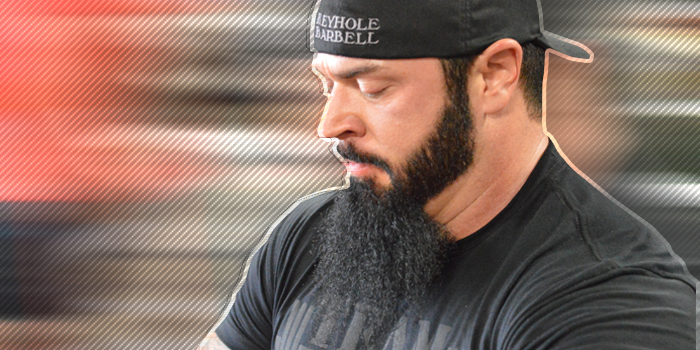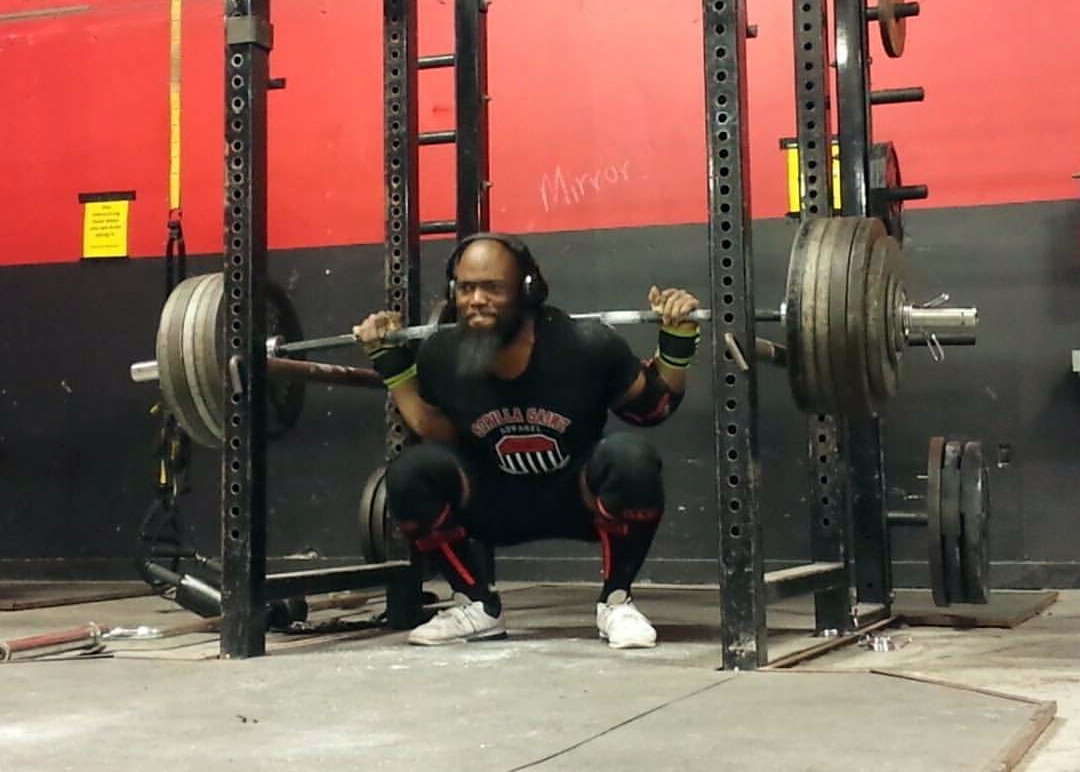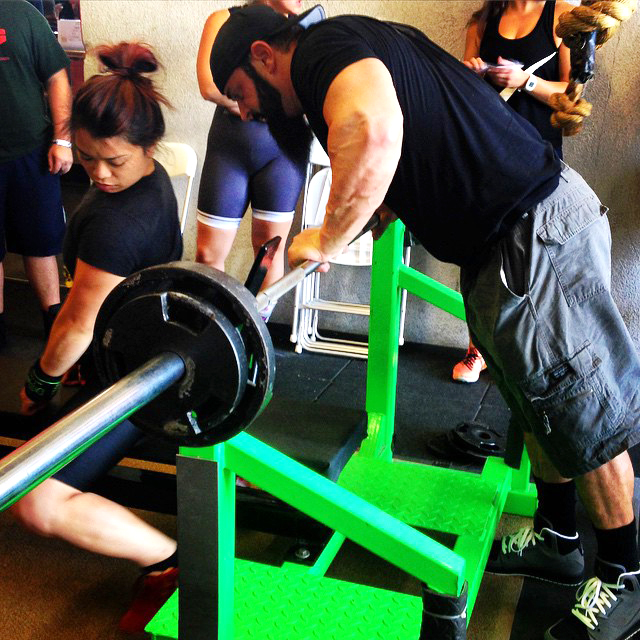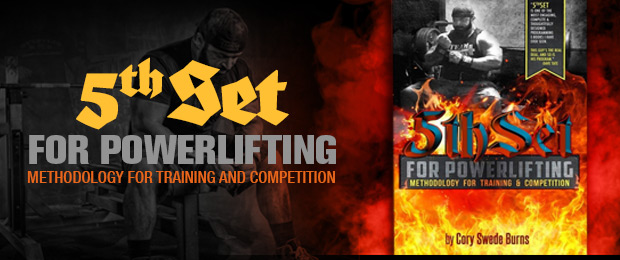
I will tell you one way to lose my attention really quickly: speak in absolutes about uncertain things.
"Humans can't breathe water."
Okay, that's absolutely true.
"Sharks can't survive long outside of water."
I'm no marine biologist, but I have a feeling that's another absolute that will hold up.
"You can't train for powerlifting without a team or a training partner."
Cue the needle screeching off the record sound bite, because I hear this one a bunch and I'm going to have to call bullshit, or more likely just pull out my phone and act like I'm too busy to keep talking to you.
I think it's fair to say that having a team or partner to train with can make things easier for most lifters, most of the time. Probably safer, too. It might even increase the likelihood of a lifter reaching their goals to have the kind of strong support system training partners can provide. I'd think it would. But, everything is not for everybody, and to say that training for powerlifting is something that can't be done alone is a bit of a stretch. I hit my first 700-pound gym squat before I had a training partner.
The vast majority of lifters do train with a team or partners. I, myself, have for many years at this point, and there are some really good reasons for that, which I will explain in greater detail to as we go. A lot of it is common sense.
This was another topic submitted by readers on my recent Facebook poll and I think it is a good idea, so I am going to show both sides of the street and outline the thinking behind each. I'm also going to provide some insight regarding how some lifters are able to do what many say is impossible and compete at the top level while training solo.
One of my closest friends, Brandon Lilly, aggregate totaled around 2200 in training this week. That was without wraps, a spotter, or even a hand off. Yep, he trains alone these days.
Brandon says training alone allows him to move quickly. It's taught him to learn to listen to his body, and train instinctively in that way.
WATCH: Table Talk — Can You Bench Alone Using a Bench Shirt?
When he made the transition to solo training, he started with higher reps for everything to "learn his rhythm" and figure out what he could do on his own. Once he got more comfortable, he started to set rep PR goals and kept improving on them until he felt confident enough to go heavy.
Considering the numbers he has been putting up, I'd say it's going pretty well.
Before you start with the whole "maybe raw, but not in gear" argument, Blaine Sumner comes to mind as an example of someone who has been successful with that. He's kind of strong in gear and he trains alone. I've seen a video of him wrapping his own knees and then walking out a thousand pounds without a spot and smoking it. He is an outlier, but there are lifters who do it.
The next logical question, if we accept that it is possible to succeed training this way is: Why? Why choose the more difficult path?
Everything is not for everyone. I can't speak for anyone else's motives, but six or seven years ago my training went to absolute shit and some time alone with the weight was exactly what the doctor ordered. I was as consistent as ever, but just showing up and going through the motions with my training partners at the time.
I made the decision to switch gyms, trained alone for a year and some of the best lifting I've ever done immediately followed.
There is a psychological component to training that cannot be overlooked and should never be undervalued. For most of us, when we started training it was a very personal thing. As we learned what we were capable of, we began to expect it of ourselves.
Invariably, if we stick with it for long enough, at some point we get comfortable with our abilities and begin to accept less from ourselves. The process becomes much less personal. The fire we once had inside begins to fade and die.
When that happens, I can tell you that no amount of pre-workout or screaming teammates can bring it back. That is where the journey ends for most lifters. They might not quit training altogether, but they give up on the idea that they can still become more than they are. I call them the walking dead and most gyms are full of them, lifting the same weights, day in and day out. Just like I was. I've even seen a bunch on powerlifting teams.
If training alone and getting back to basics can resurrect you from that shit, that sounds like a really good reason to do it. It's not the only reason to train alone or the only way to fix the problem, just a running theme I've noticed with a lot of lifters I talk to or work with, and even something I've experienced myself.
RELATED: Finding A Personal Record Through Consistency
On to the other side of the coin. Whether you are a beginner or an expert, training with a team can offer a number of benefits. When it comes to powerlifting, the shit is just not for everyone and no one is going to hold your hand. Whether you are on a team or not, you're going to have to be self aware and accountable if you want to succeed. But with that said, team training can provide not only an excellent amount of feedback and critique, but it can also be extremely motivational and much safer as well.
If you are new to lifting, you can knock five years off the learning curve by training with a team, assuming that team is composed of lifters who have some fucking idea what they are doing. It's not always safe to make that assumption, I do realize.
Another huge benefit when a newer lifter is surrounded by more experienced lifters is that the bar is usually set higher on both sides for work ethic in that situation. In my experience, lifters are less likely to quit on a rep or a set if others are watching. Newbies are scared to quit in front of the more seasoned guys, and the experienced lifters are too proud to die the cowards death in front of a newbie. I am a fan of both scenarios as a coach.
Even champions benefit from team training. I believe Tarra when she says she would never even train if it wasn't for the fact that the team shows up and she has to show them who is boss.
At the end of the day, what it comes down to is that there is no wrong way to train for this sport. There is no only way. There are many ways, just as there are many different types of lifters and many motives for doing the lifting. For some of us, training is a spiritual thing. For others, it's mechanical. For others still, it's a photo-op, so they can get a profile picture locking out a 400 pound deadlift. Nobody is wrong. Powerlifting is all of those things. Train for it in the way that seems right to you.













With my partner, if he is having a shit day and is pissy and moaning, I'm gonna have a shitty training session. Also, when you're injured, and my partner wasn't, I was more likely to keep pushing and wind up getting hurt worse.
Training alone is great for building mental toughness and learning how to listen to your body. Again, great article Swede.
Was a gym rat here since teen years began four plus decades ago. A year ago started powerlifting with an awesome trainer running first the Cube and then your Fifth Set. After my last meet a week ago I started lifting alone with my own program of high reps at 50 to 60 percent once a day and bodybuilding
later in the same day. For me lifting is spiritual and I, as you point out, have re-found my own rhythm.
Looking forward to your seminar next month in Jersey.